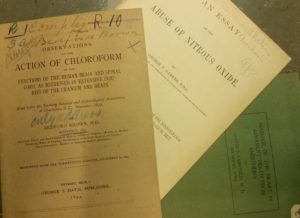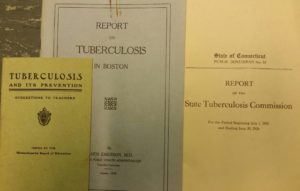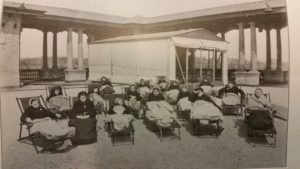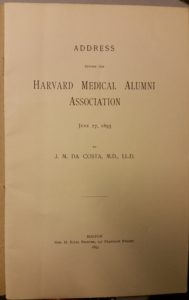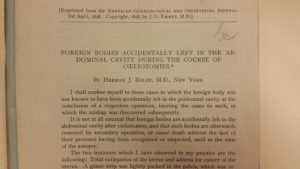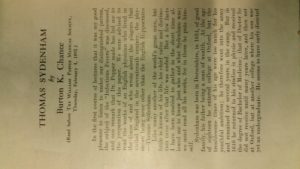IN WHICH OUR HERO UNCOVERS BURIED TREASURE….
OUR FIRST ADVENTURE TAKES US DEEP INTO AN INTERN’S FIRST EXPERIENCE IN ORIGINAL CATALOGING, MEDICAL SUBJECT HEADINGS, AND THE WONDROUS HISTORY FOUND IN MEDICAL TRADE EPHEMERA.
– by Hend El-Santaricy, Library intern
In my quest to become a more experienced cataloger, I found the internship opportunity at the Historical Medical Library of The College of Physicians of Philadelphia (HML) to be a perfect way to achieve my goal. My project was to catalog the medical reprints and pamphlets described in this blog. I started the cataloging process after the collection was initially sorted by another librarian. This allowed me the privilege of spending all my time cataloging.
I started this internship wanting nothing more than a cataloging experience. I have had opportunities to work on different collections before. In every previous experience, I was able to delve into a special relationship with the collection, its history, its use, and its potential. I knew I could perform my assignment at the HML well but I was not certain, though, if I could build a relationship with a collection about the history of medicine. I was a stranger to the medical field.
The first few days were so challenging, during which I focused on the technical side of my experience. I worked to break down the medical terminology and to understand the structure of Medical Subject Headings (MeSH) from the National Library of Medicine. Halfway through this internship, and to my surprise, I found a way to connect. I realized the beauty hidden in this collection of pamphlets and reprints…HISTORY!
This collection of pamphlets and reprints brings out not only the medical history but also a great deal of our public history as well: disease outbreaks, scientific discoveries, new medical procedures, and communication within the medical field in the 19th century, all intertwined the daily lives of patients and doctors. The collection emphasizes how far our world has come. The hard work, sacrifices, mistakes, and successes that defined medical progress are so much more vivid in this collection. This collection makes me realize how much we take for granted in our medical care.
Some pamphlets discuss health and hygiene, tuberculosis outbreaks, cancer, and physicians’ reports of accidental death, as well as the new discoveries and treatments that helped shape our world today. Some pamphlets communicated news and information within the medical fields, while others document speeches and talks before professional societies.
Other pamphlets contain news articles addressed to the public. Many of those prints reflected the enthusiasm and wit of doctors in addressing matters related to their medical practice.

Many pamphlets document charitable and societal efforts to raise awareness of disease and to provide medical service, such as the Boston Dispensary, which provided “medical relief of the poor in Massachusetts” from the late 18th century through the mid-20th century. All of these amazing historical events have been hidden for so long in the Library’s stacks.

From a cataloging perspective, having the collection organized before embarking on my project paved the path for me to spend more time understanding the trends and patterns within the collection. Mostly, I enjoyed developing my cataloging skills and adding new experience working the Library’s cataloging system ALEPH. Working with MeSH subject headings introduced me to a different hierarchical arrangement of subject description for medical publications.
Potential uses of the collection are geared towards users who are interested in medical publishing or historical events in medicine. In many cases, I found that using MeSH terminology seemed too specialized, and I followed the tradition of previous catalogers at the Library who used Library of Congress subject headings to improve accessibility.
The 120 hours I spent cataloging these pamphlets and reprints were only enough to bring to life a very small number of the 70,000 items in the collection. I am proud to be a part of making the pamphlets accessible!


